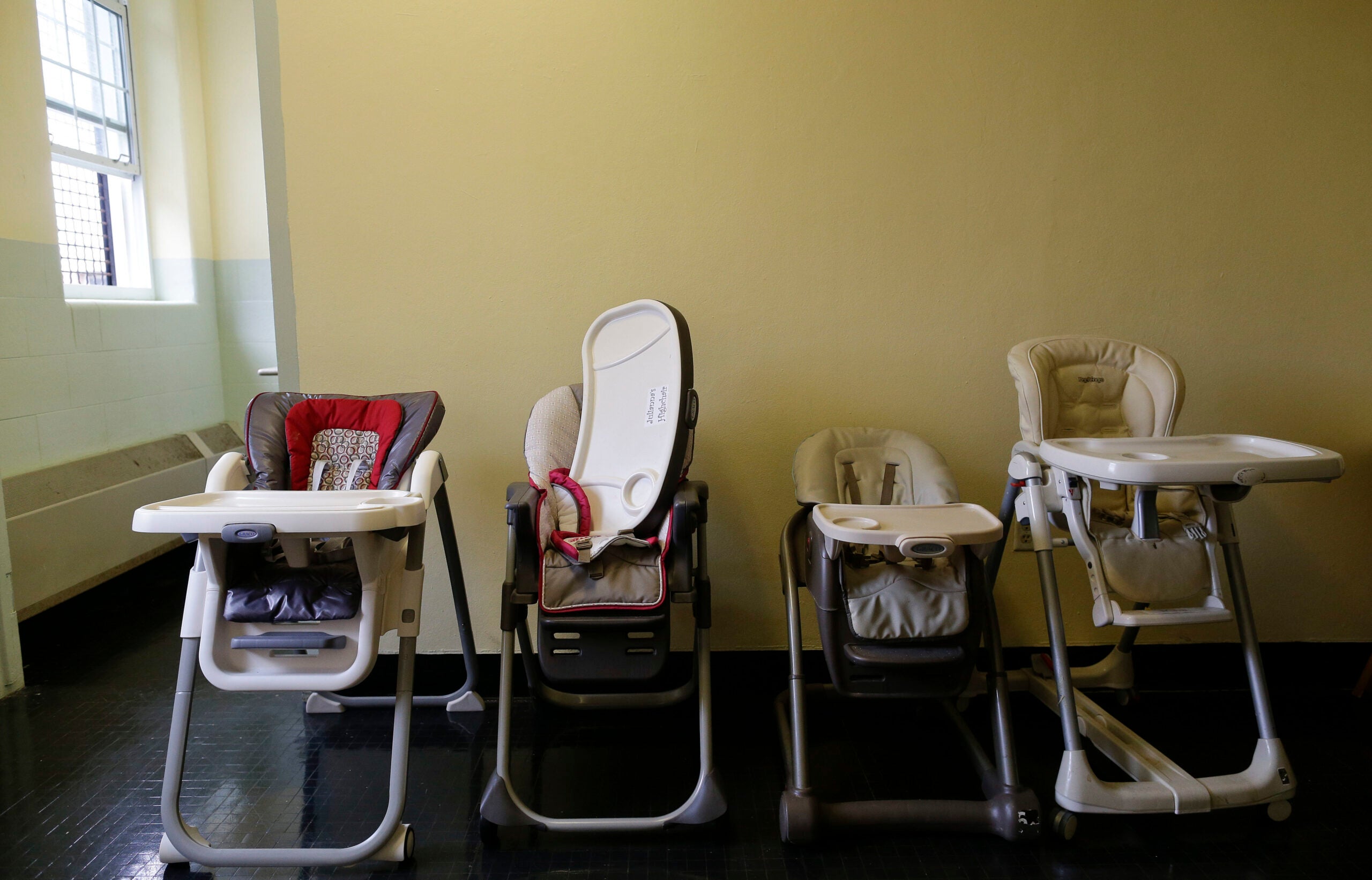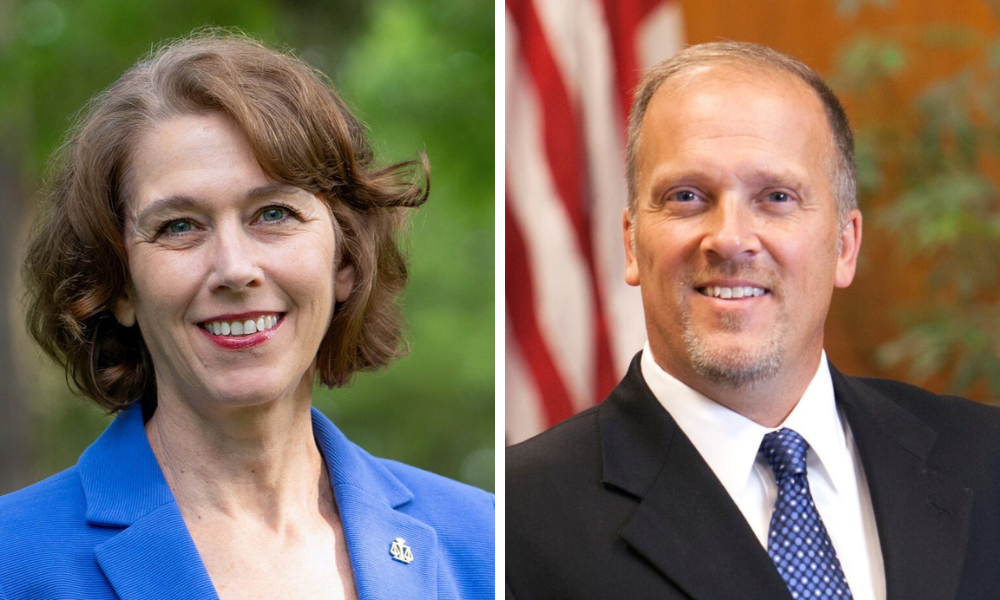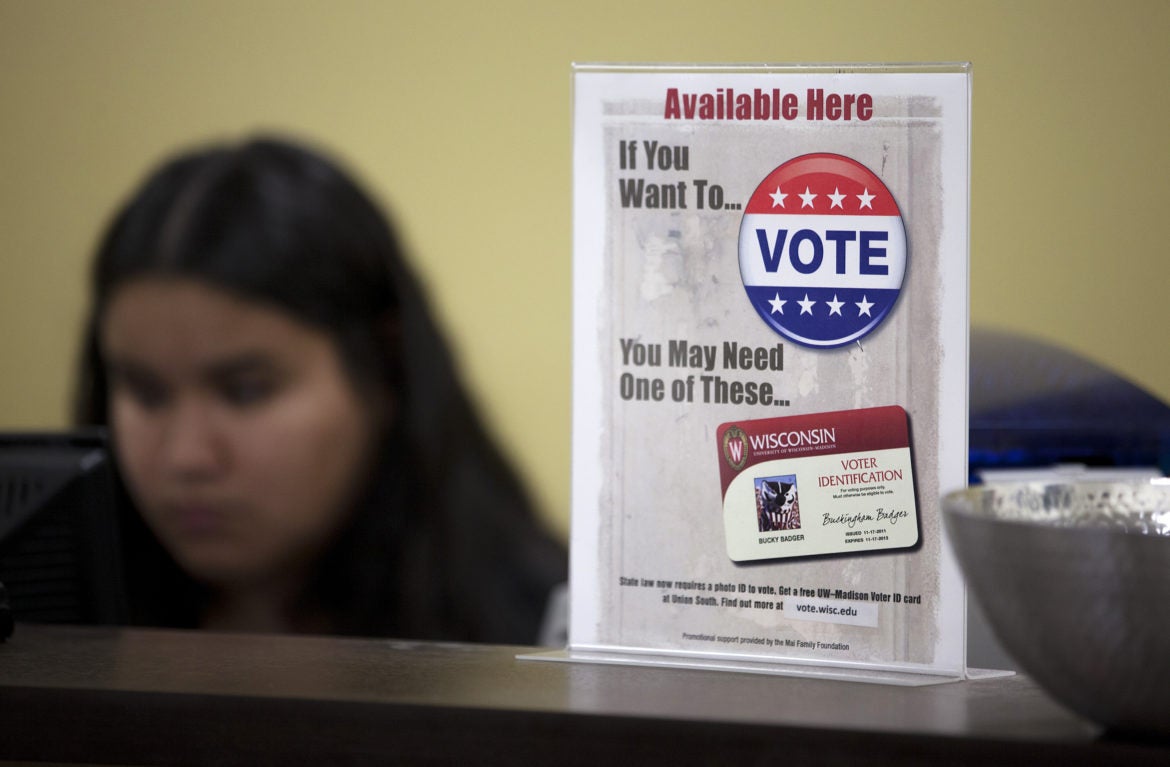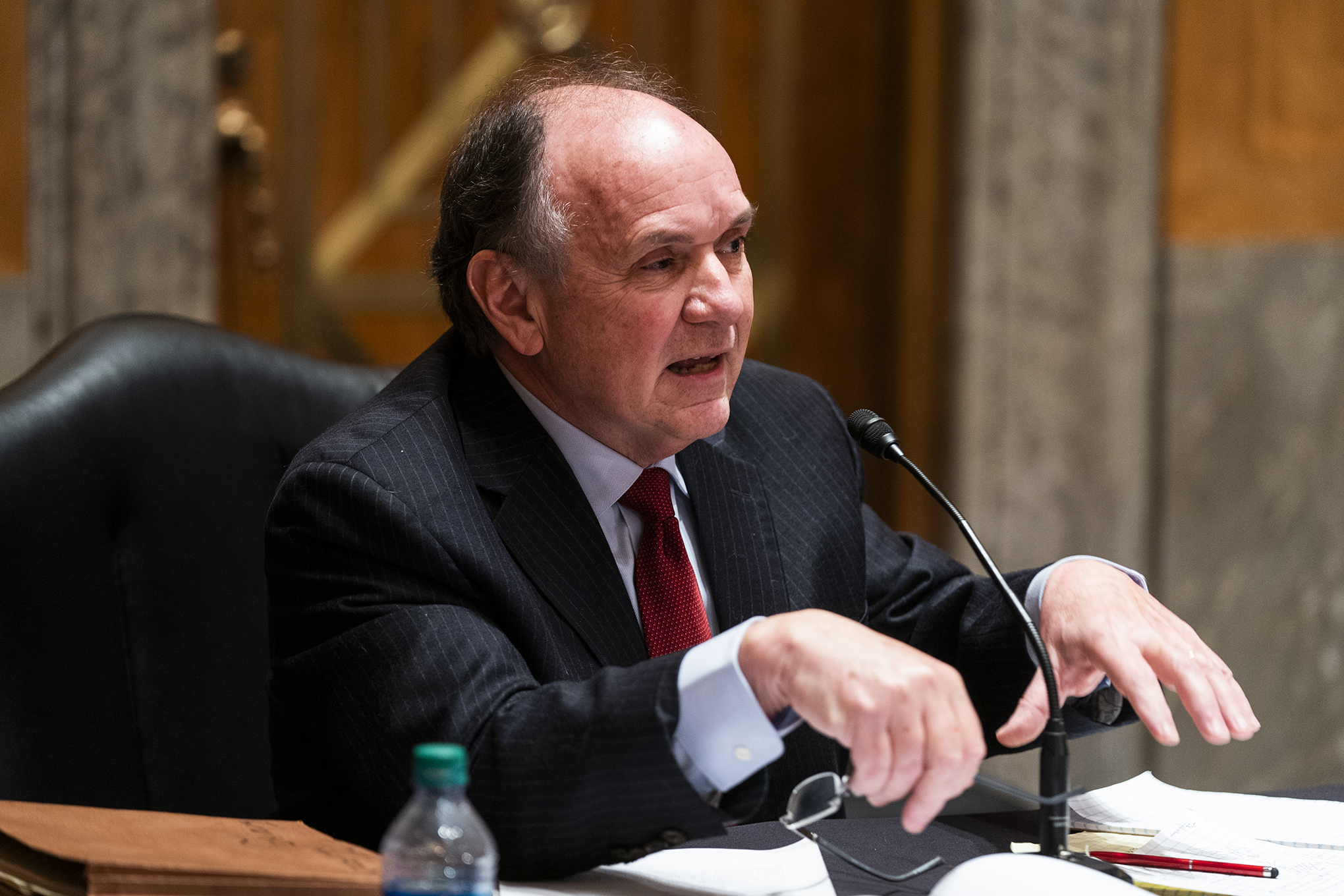The Wisconsin Supreme Court heard arguments Monday in a lawsuit seeking to block Republican state lawmakers from hiring private attorneys in anticipation of future redistricting lawsuits.
The suit involves contracts with law firms signed by state Assembly Speaker Robin Vos, R-Rochester, and state Senate Majority Leader Devin LeMahieu, R-Oostburg, to obtain attorneys outside the Wisconsin Department of Justice for legal advice ahead of potential lawsuits during the reapportionment process.
The disputed contracts were signed by Vos and LeMahieu in late December 2020 and early January 2021.
Stay informed on the latest news
Sign up for WPR’s email newsletter.
The Consovoy McCarthy PLLC contract calls for paying the firm $30,000 per month for “pre-litigation counseling” starting in January and up to $965,000 through this year.
The other contract with Bell Giftos St. John LLC calls for paying an hourly rate of $375 per hour. That firm includes Kevin St. John, who was deputy attorney general under former Republican Attorney General J.B. Van Hollen.
In April, Dane County Circuit Court Judge Stephen Ehlke ruled that because no lawsuits were pending at the time the contracts were signed, it was premature for the Legislature to hire attorneys. The judge stated that under the plain terms of the state statute, the lawmakers didn’t have authority to enter into the contracts.
That decision was temporarily blocked by the Wisconsin Supreme Court in July, which lifted the earlier ban on lawmakers hiring private attorneys. The court’s majority ruled that Judge Ehlke failed to consider that Republicans had “more than the mere possibility” of success on appeal or the potential harm to legislators by denying them from hiring attorneys of their choosing.
During Monday’s hearing before the state’s high court, attorney Misha Tseytlin represented Vos and LeMahieu. He argued Judge Ehlke’s April decision blocking the contracts was “an unprecedented intrusion into the Legislature’s basic functioning, disabling the legislature from obtaining needed expert advice” during the redistricting process.
Tseytlin said contracts between the Legislature and outside law firms are clearly allowed under state statutes used for procuring goods and services. He urged Justices to overturn the lower court’s ruling and also issue an opinion offering guidance to lower courts and litigants about how to proceed in situations where an appeal is being sought. Tseytlin said the circuit court judge refused to issue a stay on his ruling in April and a request to a state appeals court was denied before being granted by the Wisconsin Supreme Court in July.
“We suffered weeks and weeks of irreparable harm under a decision that should have been stayed from the outset,” said Tseytlin.
Attorney Lester Pines represented plaintiffs hoping to throw out the legal contracts. Pines argued that a state statute passed during a lame duck session of the Legislature in late 2018 allows legislative leaders to hire private attorneys only when a lawsuit is pending and not in anticipation of a legal challenge. Pines said if the court doesn’t strike down the contracts, Republican lawmakers could simply hire outside counsel for any potential future litigation.
“Or maybe they want to have a shadow attorney general’s office,” said Pines. “They don’t like the attorney general now. Let’s have all of these outside counsel standing by in cases where we might have an interest in an action that might be filed.”
Wisconsin Supreme Court Justice Brian Hagedorn, a conservative who has sided with liberals on the court in past cases, said he understood Pines’ argument about current versus future legal actions, but noted that he was unaware of any redistricting process that hasn’t been challenged in court since then 1960s.
“If there is a more certain litigation that exists, I’m unaware of it,” said Hagedorn.
There are have been three lawsuits filed this year surrounding the redistricting process. Democrats filed the first challenge in August and asked a federal court to step in and draw the next set of political lines.
Two additional lawsuits were filed later that month. One was brought by conservative group Wisconsin Institute for Law and Liberty and suggested Wisconsin Supreme Court Justices could potentially redraw voting districts themselves.
Wisconsin Public Radio, © Copyright 2025, Board of Regents of the University of Wisconsin System and Wisconsin Educational Communications Board.





